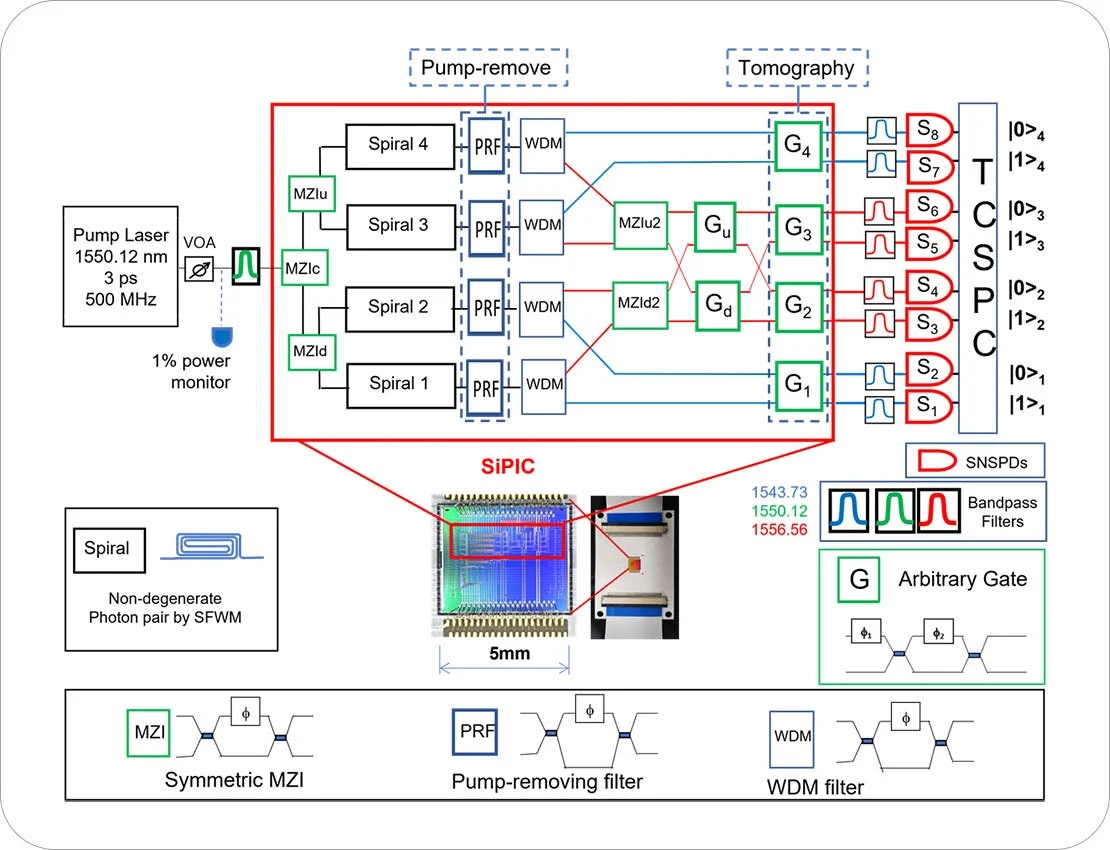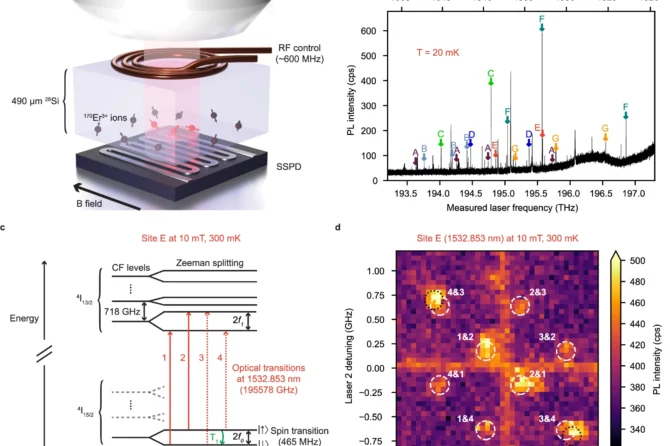South Korean researchers at the Electronics and Telecommunications Research Institute (ETRI) have achieved a significant breakthrough in quantum computing with their development of an advanced photonic quantum circuit chip. The chip’s most notable feature is its ability to control up to eight photons, enabling the study of complex quantum phenomena including multipartite entanglement.
Through collaboration with KAIST and the University of Trento, ETRI has demonstrated several important milestones in quantum entanglement. The team successfully achieved 2-qubit and 4-qubit quantum entanglement, setting performance records for silicon photonics chips. They further advanced this technology by demonstrating 6-qubit entanglement using their 8-photonic qubit control chip, establishing a new record for quantum states based on silicon-photonic technology.
The chip’s architecture is remarkably compact, fitting into a space roughly the size of a fingernail (10mm x 5mm). It incorporates 8 photonic sources and approximately 40 optical switches, half of which function as linear-optic quantum gates. The system uses pairs of propagation paths to encode qubits, with one path representing 0 and the other representing 1. The researchers successfully demonstrated the Hong-Ou-Mandel effect, showing how two distinct photons can interfere and travel together along the same path.
This technology holds particular promise for quantum computing applications due to several key advantages:
- Scalability through optical networking
- Ability to operate at room temperature
- Low energy consumption
- Potential for creating vast networks by connecting multiple chips via optical fibers
ETRI’s research team has outlined ambitious future plans, including:
- Fabrication of 16-qubit chips within the year
- Scaling up to 32-qubit systems
- Development of a cloud-based quantum computing service
- Establishment of a lab-scale system to enhance quantum computation research capabilities
While acknowledging the significant progress, researchers emphasize that considerable long-term research is still needed to address computational errors caused by quantum process noise before achieving practical quantum computation. This development represents a major step forward in the global race for quantum computing supremacy, positioning South Korea as a significant contributor to this cutting-edge field.
Reference: “Quantum states generation and manipulation in a programmable silicon-photonic four-qubit system with high-fidelity and purity” by Jong-Moo Lee, Jiho Park, Jeongho Bang, Young-Ik Sohn, Alessio Baldazzi, Matteo Sanna, Stefano Azzini and Lorenzo Pavesi, 16 July 2024, APL Photonics.
DOI: 10.1063/5.0207714



